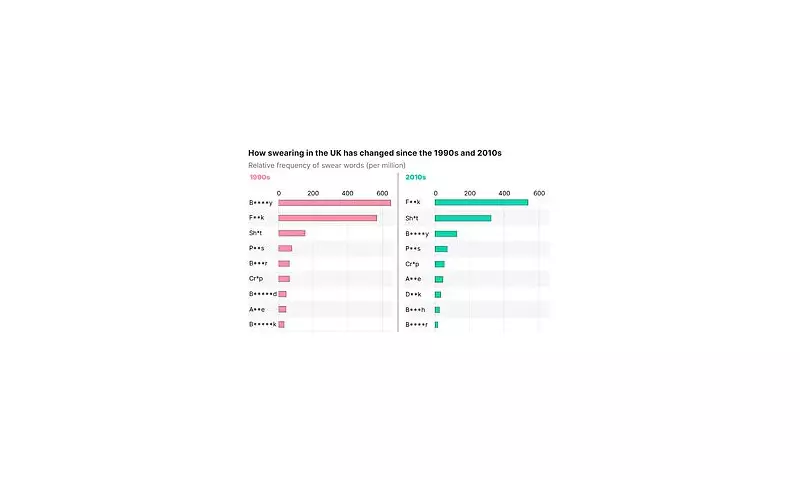
A groundbreaking study has uncovered a dramatic shift in what young people consider offensive language, with traditional swear words losing their power while discriminatory slurs are now deemed most harmful.
The Changing Face of Offensive Language
Research from Macquarie University in Australia reveals that Generation Z considers racist, sexist, homophobic, and ableist slurs as the most offensive terms in the English language. Meanwhile, old-fashioned profanity involving sex, religion, and bodily functions barely registers as concerning for today's youth.
The study found that words like 'bloody', 'bugger', 'bastard', and 'bullshit' have become so tame that young people don't even classify them as swear words anymore. Out of the 20 most offensive terms identified, 16 were slurs rather than traditional swear words.
Research Methodology and Key Findings
Researchers recruited 60 Australian-born university students and asked them to rate 55 swear words and slurs based on how offensive they found them. The results demonstrated that many words once considered too rude for public conversation are now widely acceptable.
Lead author Dr Joshua Wedlock explained: 'Language—especially what's considered taboo—is shaped by culture. As Australian society has become more secular, taboos around religious phrases used as swearwords have generally died out.'
This cultural shift means expressions like 'Jesus Christ' or 'damn' have lost their capacity to offend. However, the decline isn't limited to blasphemy—traditional swear words ranked significantly below slurs in their potential to cause offence.
UK Swearing Habits in Global Context
The research coincides with studies showing similar patterns in British language use. Ofcom research indicates that the UK public increasingly views racist and homophobic slurs as more offensive, even as tolerance for conventional swearing grows.
Interestingly, Brits remain the second-most prolific swearers globally, trailing only the United States but ahead of Australia. However, swearing rates in the UK have actually fallen by a quarter since the 1990s.
Dr Robbie Love, a swearing expert from Aston University not involved in the study, told Daily Mail: 'There is nothing unusual about this development since taboo language has always followed along with broader social values.'
His own research confirms that swearing usage has decreased by 27.6 per cent, from 1,822 words per million in 1994 to 1,320 words per million in 2014.
The study also revealed that Australian students considered slurs targeting Aboriginal Australians less offensive than those targeting black people. Dr Wedlock noted: 'The N-word was generally regarded as the top taboo. This demonstrates the growing influence of American culture in media and music for young Australians in particular.'
As society's values evolve, so too does our relationship with language, with young people leading the charge in redefining what truly constitutes offensive speech in the modern era.





